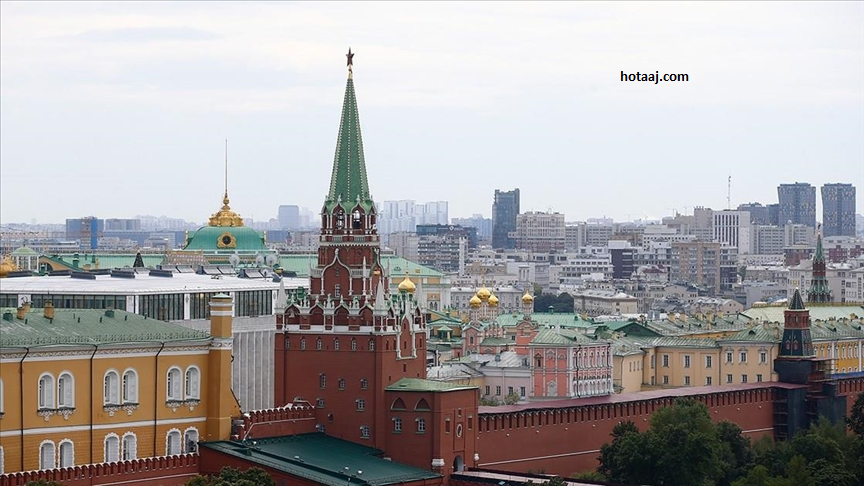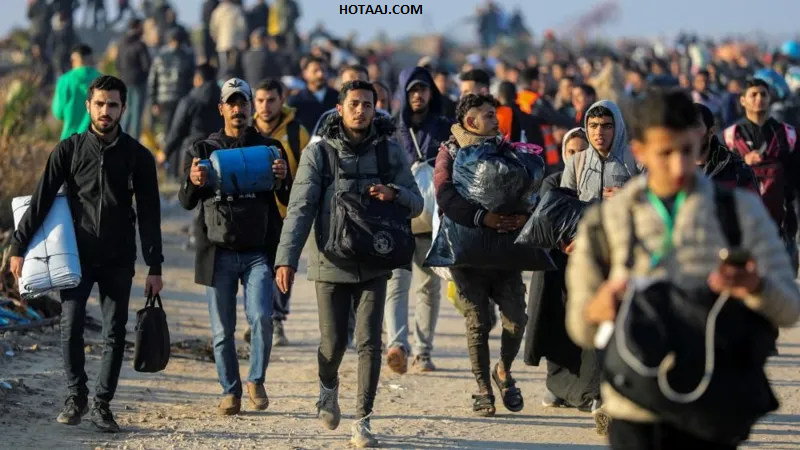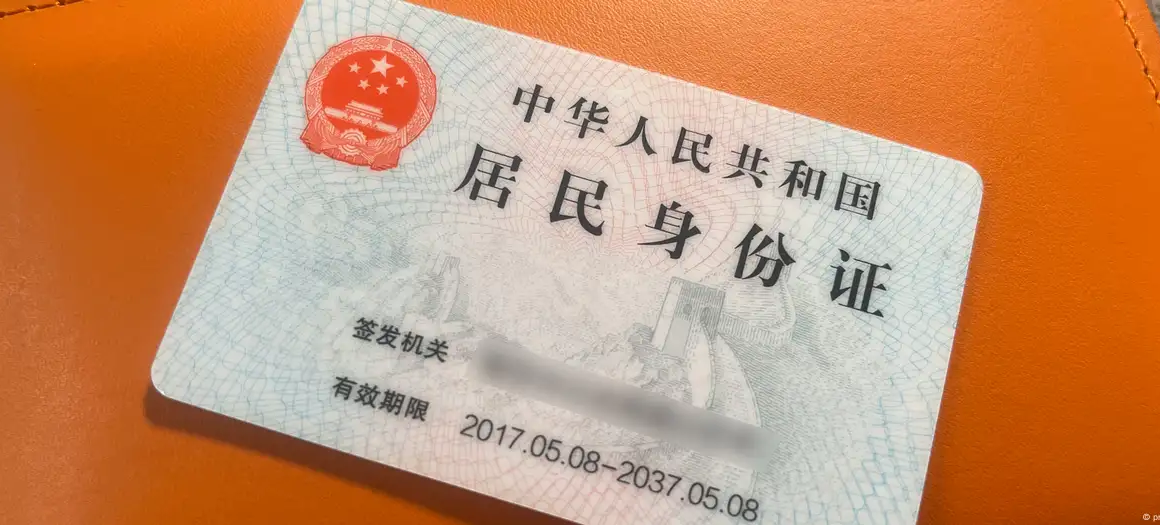“Kremlin to Permit NATO Countries to Continue Arms Shipments to Kyiv Under Bilateral Agreements, Report Says”

Russia plans to demand that Ukraine significantly reduce its military ties with NATO in any potential peace talks with incoming U.S. President Donald Trump, according to a Bloomberg report on Wednesday. The demand is part of Moscow’s broader strategy to ensure that Ukraine does not deepen its relationship with the alliance, which Russia views as a threat to its influence in the region.
The report suggests that Russia sees this as a crucial condition for negotiations and a way to limit Ukraine’s integration into NATO’s military framework. It is unclear whether the U.S. administration under Trump would agree to such a demand or how Ukraine would respond to this pressure, especially given its ongoing conflict with Russia and its aspirations for closer ties with NATO.
In addition to the reduction of military cooperation, Russia’s demands could extend to other aspects of Ukraine’s foreign policy and military alliances, creating a significant hurdle for any peace talks. The development highlights the ongoing tension between Russia and the West, with Ukraine caught in the middle of the geopolitical struggle.
The Bloomberg report, citing sources familiar with Moscow’s preparations, revealed that the Kremlin plans to demand Ukraine become a neutral state with a limited military force as a condition for any peace talks with incoming U.S. President Donald Trump. Moscow’s stance reportedly permits individual NATO members to provide arms to Ukraine through bilateral agreements, but with strict limitations on their use.
According to the sources, Russia insists that weapons supplied through these agreements must not be used against Russian forces or to reclaim Ukrainian territory currently under Moscow’s control. This condition reflects Russia’s goal of maintaining its hold over the territories it has captured during the ongoing conflict.
The report also underscores that Russia’s conditions for peace talks include retaining control over nearly 20% of Ukrainian territory seized since the war began, along with retaining its annexation of Crimea in 2014. Moscow is said to be open to negotiations involving potential “territory swaps” as part of a broader settlement.
Last Friday, Donald Trump revealed that a meeting with Russian President Vladimir Putin is being planned. However, Kremlin spokesman Dmitry Peskov stated Monday that no substantial preparations for such talks have taken place yet.
The Russia-Ukraine war has led to ongoing territorial disputes, with Russia annexing Crimea in 2014 and occupying large swaths of eastern Ukraine since the conflict escalated in 2022. These actions have sparked widespread international condemnation and have resulted in sanctions against Russia from Western nations. The war has strained international relations, particularly between Russia and NATO members, and has led to significant geopolitical realignments. Ukraine has sought closer ties with NATO and the European Union, while Russia views NATO’s expansion as a direct threat to its security. The conflict has also caused immense human suffering, with tens of thousands of casualties and millions displaced.
Courtesy: WION
References
- ^ “The NATO Russian Founding Act | Arms Control Association”. www.armscontrol.org. Retrieved 6 April 2024.
- ^ Benson, Brett V. (2012). Constructing International Security: Alliances, Deterrence, and Moral Hazard. Cambridge: Cambridge University Press. p. 67. ISBN 978-1107027244.
- ^ “Russia says deployment of EU mission in Armenia to ‘exacerbate existing contradictions'”.
- ^ Jump up to:a b RAND, Russia’s Hostile Measures: Combating Russian Gray Zone Aggression Against NATO in the Contact, Blunt, and Surge Layers of Competition (2020) online
- ^ “Twenty Years of Russian “Peacekeeping” in Moldova”. Jamestown. Retrieved 6 April 2024.
- ^ “President of Russia”. 2 September 2008. Archived from the original on 2 September 2008. Retrieved 6 April 2024.
- ^ Higgins, Andrew; Erlanger, Steven (27 February 2014). “Gunmen Seize Government Buildings in Crimea”. The New York Times. ISSN 0362-4331. Retrieved 6 April 2024.
- ^ Ellyatt, Holly (24 February 2022). “Russian forces invade Ukraine”. CNBC. Retrieved 6 April 2024.
- ^ “Russia joins war in Syria: Five key points”. BBC News. 1 October 2015. Retrieved 6 April 2024.
- ^ “Russia blocks trains carrying Kazakh coal to Ukraine | Article”. 5 November 2021.
- ^ Jump up to:a b “Russia suspends its mission at NATO, shuts alliance’s office”. AP. 18 October 2021. Retrieved 19 October 2021.
- ^ Chernova, Anna; Fox, Kara. “Russia suspending mission to NATO in response to staff expulsions”. CNN. Retrieved 19 October 2021.
- ^ Jump up to:a b “Madrid Summit ends with far-reaching decisions to transform NATO”. NATO. 30 June 2022.
- ^ Wolska, Anna (15 July 2023). “Fake of the week: Russia is waging war against NATO in Ukraine”. EURACTIV.pl.
- ^ “”Special military operation”, “Nazis” and “at war with NATO”: Russian state media framing of the Ukraine war”. ISPI. Retrieved 16 December 2024.
- ^ Jump up to:a b Vavra, Shannon (21 September 2022). “‘The Time Has Come’: Top Putin Official Admits Ugly Truth About War”. The Daily Beast. Retrieved 1 October 2022.
- ^ Tisdall, Simon (5 March 2023). “Nato faces an all-out fight with Putin. It must stop pulling its punches”. The Observer. ISSN 0029-7712. Retrieved 26 June 2023.
- ^ Sarotte, Mary Elise (2014). “A Broken Promise? What the West Really Told Moscow About NATO Expansion”. Foreign Affairs. 93 (5): 90–97. ISSN 0015-7120. JSTOR 24483307.
- ^ Goldgeier J, Shifrinson JRI. Evaluating NATO enlargement: Scholarly debates, policy implications, and roads not taken Evaluating NATO Enlargement: From Cold War Victory to the Russia-Ukraine War: Springer International Publishing; 2023. p. 1-42 doi: 10.1007/978-3-031-23364-7_1.
- ^ Zollmann, Florian (30 December 2023). “A war foretold: How Western mainstream news media omitted NATO eastward expansion as a contributing factor to Russia’s 2022 invasion of the Ukraine”. Media, War & Conflict. 17 (3): 373–392. doi:10.1177/17506352231216908. ISSN 1750-6352. This article incorporates text from this source, which is available under the CC BY 4.0 license.
- ^ Korshunov, Maxim (16 October 2014). “Mikhail Gorbachev: I am against all walls”. rbth.com. Retrieved 12 May 2024.
- ^ Jump up to:a b c Goldgeier J, Shifrinson JRI. Evaluating NATO enlargement: From cold war victory to the Russia-Ukraine war: Springer International Publishing; 2023. 1-645 p doi: 10.1007/978-3-031-23364-7.
- ^ “Old adversaries become new partners”. NATO.
- ^ Iulian, Raluca Iulia (23 August 2017). “A Quarter Century of Nato-Russia Relations”. Cbu International Conference Proceedings. 5: 633–638. doi:10.12955/cbup.v5.998. ISSN 1805-9961.
- ^ “First NATO Secretary General in Russia”. NATO.
- ^ “Memorandum of Telephone Conversation, Bush-Yeltsin, December 8, 1991 | National Security Archive”. nsarchive.gwu.edu.
- ^ https://www.venice.coe.int/webforms/documents/?pdf=CDL(1994)054-e
- ^ https://cis.minsk.by/reestrv2/doc/1#text
- ^ “СССР прекратил существование, 11 республик вступают в СНГ”.
- ^ https://cis.minsk.by/reestrv2/doc/79#documentCard
- ^ “NATO’s Relations With Russia”. NATO Public Diplomacy Division, Belgium. 6 April 2017. Retrieved 26 May 2017.
- ^ “NATO Strategic Concept for the Defence and Security of the Members of the North Atlantic Treaty Organization” (PDF). NATO Public Diplomacy Division, Belgium. 20 November 2010. Retrieved 26 May 2017.
- ^ “The NATO-Russia Archive – Formal NATO-Russia Relations”. Berlin Information-Center For Translantic Security (BITS), Germany. Retrieved 22 April 2016.
- ^ “NATO PfP Signatures by Date”. NATO Public Diplomacy Division, Belgium. 10 January 2012. Retrieved 22 April 2016.
- ^ https://nsarchive.gwu.edu/document/30920-document-8-cable-us-embassy-moscow-state-department-presidents-dinner-president
- ^ https://www.bfm.ru/news/542897
- ^ https://www.rbc.ru/politics/26/01/2024/65b31bcc9a7947b8bad62e39
- ^ https://www.kommersant.ru/doc/90894
- ^ Kozyrev, Andrei (2019). “Russia and NATO Enlargement: An Insider’s Account” (PDF).
- ^ Whitney, Craig R. (9 November 1995). “Russia Agrees To Put Troops Under U.S., Not NATO”. New York Times. Archived from the original on 26 May 2015.
- ^ Jones, James L. (3 July 2003). “Peacekeeping: Achievements and Next Steps”. NATO.
- ^ Jump up to:a b “Lessons and Conclusions on the Execution of IFOR Operations and Prospects for a Future Combined Security System: The Peace and Stability of Europe after IFOR” (PDF). Foreign Military Studies Office. November 2000. p. 4.
- ^ Shevtsov, Leonty (21 June 1997). “Russian Participation in Bosnia-Herzegovina”.
- ^ Joulwan, George (21 June 1997). “The New NATO: The Way Ahead”.
I firmly believe that our cooperation at SHAPE and in Bosnia was instrumental in the creation of the NATO-Russia Founding Act, which was signed in May 1997 in Paris. As NATO’s Deputy Secretary General said, ‘Political reality is finally catching up with the progress you at SHAPE had already made.’
- ^ https://cis.minsk.by/reestrv2/print/documentCard?ids=6
- ^ https://nsarchive.gwu.edu/document/32237-document-14-memorandum-conversation-clinton-yeltsin-summit-helsinki-finland-subject
- ^ https://www.rbc.ru/politics/10/07/2024/668e862a9a7947761cca152b
- ^ Ronald D. Azmus, Opening NATO’s Door (2002) p. 210.
- ^ Strobe Talbott, The Russia Hand: A Memoir of Presidential Diplomacy (2002) p. 246.
- ^ Fergus Carr and Paul Flenley, “NATO and the Russian Federation in the new Europe: the Founding Act on Mutual Relations.” Journal of Communist Studies and Transition Politics 15.2 (1999): 88–110.
- ^ “5/15/97 Fact Sheet: NATO-Russia Founding Act”. 1997-2001.state.gov. Retrieved 31 May 2022.
- ^ Jump up to:a b “NATO Publications”. www.nato.int. Retrieved 28 May 2022.
- ^ “Nato-Russia Council – Documents & Glossaries”. www.nato.int. Retrieved 28 May 2022.
- ^ The NATO-Russia Joint Editorial Working Group (8 June 2021). “NATO-Russia Glossary of Contemporary Political and Military Terms” (PDF).
- ^ “Yeltsin: Russia will not use force against Nato”. The Guardian. 25 March 1999.
- ^ “Yeltsin warns of possible world war over Kosovo”. CNN. 9 April 1999.
- ^ Goldgeier J, Shifrinson JRI. Evaluating NATO enlargement: From cold war victory to the Russia-Ukraine war: Springer International Publishing; 2023. 1-645 p doi: 10.1007/978-3-031-23364-7. p.165.
- ^ “Russia Condemns NATO’s Airstrikes”. Associated Press. 8 June 1999.
- ^ Jackson, Mike (2007). Soldier. Transworld Publishers. pp. 216–254. ISBN 9780593059074.
- ^ “Confrontation over Pristina airport”. BBC News. 9 March 2000.
- ^ Peck, Tom (15 November 2010). “Singer James Blunt ‘prevented World War 3′”. Belfast Telegraph.
- ^ https://web.archive.org/web/20001208050400/http://news2.thls.bbc.co.uk/hi/english/world/europe/newsid_666000/666501.stm
- ^ https://web.archive.org/web/20001208051500/http://news2.thls.bbc.co.uk/hi/english/world/europe/newsid_666000/666768.stm
- ^ https://web.archive.org/web/20041126012223/http://www.bbc.co.uk/russian/0305_1.shtml
- ^ Hall, Todd (September 2012). “Sympathetic States: Explaining the Russian and Chinese Responses September 11”. Political Science Quarterly. 127 (3): 369–400. doi:10.1002/j.1538-165X.2012.tb00731.x.
- ^ “NATO–Russia Council Statement 28 May 2002” (PDF). NATO. 28 May 2002. Archived (PDF) from the original on 3 February 2022. Retrieved 3 February 2022.
- ^ Jump up to:a b “Nato-Russia Council – About”. www.nato.int. Retrieved 31 May 2022.
- ^ NATO. “NATO – Official text: Founding Act on Mutual Relations, Cooperation and Security between NATO and the Russian Federation signed in Paris, France, 27-May.-1997”. NATO. Retrieved 22 April 2016.
- ^ Cook, Lorne (25 May 2017). “NATO: The World’s Largest Military Alliance Explained”. www.MilitaryTimes.com. The Associated Press, US. Retrieved 26 May 2017.
- ^ “Structure of the NATO-Russia Council” (PDF). Retrieved 30 May 2022.
- ^ “Nato Blog | Dating Council”. www.nato-russia-council.info. Archived from the original on 8 February 2009.
- ^ “Nat-o Blog | Dating Council”. www.nato-russia-council.info.
- ^ “Nato Blog | Dating Council”. www.nato-russia-council.info. Archived from the original on 8 February 2009.
- ^ “Allies and Russia attend U.S. Nuclear Weapons Accident Exercise”. Archived from the original on 28 August 2008. Retrieved 3 December 2008.
- ^ “NATO Summit Meetings – Rome, Italy – 28 May 2002”. www.nato.int. Retrieved 26 October 2024.
- ^ Ukraine News The Chronicles of War (24 June 2022). путин о вступлении Украины в НАТО. Retrieved 26 October 2024 – via YouTube.
- ^ Zwack, Peter B. (Spring 2004). “A NATO-Russia Contingency Command”. Parameters: 89.
- ^ Guinness World Records: First murder by radiation:
On 23 November 2006, Lieutenant Colonel Alexander Litvinenko, a retired member of the Russian security services (FSB), died from radiation poisoning in London, UK, becoming the first known victim of lethal Polonium 210-induced acute radiation syndrome. - ^ “CPS names second suspect in Alexander Litvinenko poisoning”. The Telegraph. 29 February 2012. Archived from the original on 12 January 2022.
- ^ Chapter 2. Rights and Freedoms of Man And Citizen | The Constitution of the Russian Federation. Constitution.ru. Retrieved on 12 August 2013.
- ^ “Russia warns of resorting to ‘force’ over Kosovo”. France 24. 22 February 2008.
- ^ In quotes: Kosovo reaction, BBC News Online, 17 February 2008.
- ^ “Putin calls Kosovo independence ‘terrible precedent'”. The Sydney Morning Herald. 23 February 2008.
- ^ “NATO’s relations with Russia”.
- ^ “Ukraine: NATO’s original sin”. Politico. 23 November 2021.
- ^ Menon, Rajan (10 February 2022). “The Strategic Blunder That Led to Today’s Conflict in Ukraine”. ISSN 0027-8378. Retrieved 15 May 2022.
- ^ Bush backs Ukraine on Nato bid, BBC News













